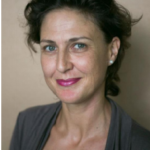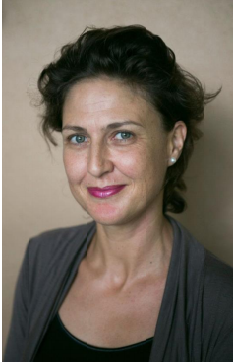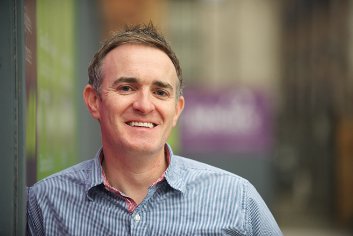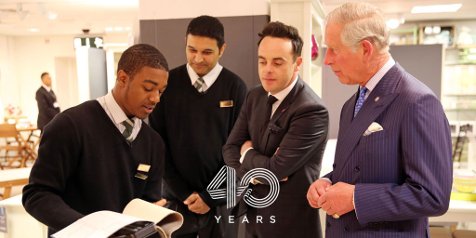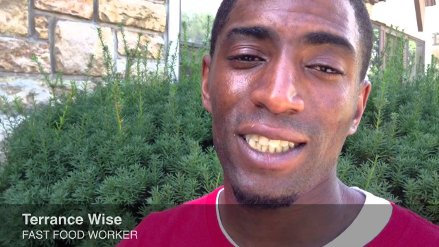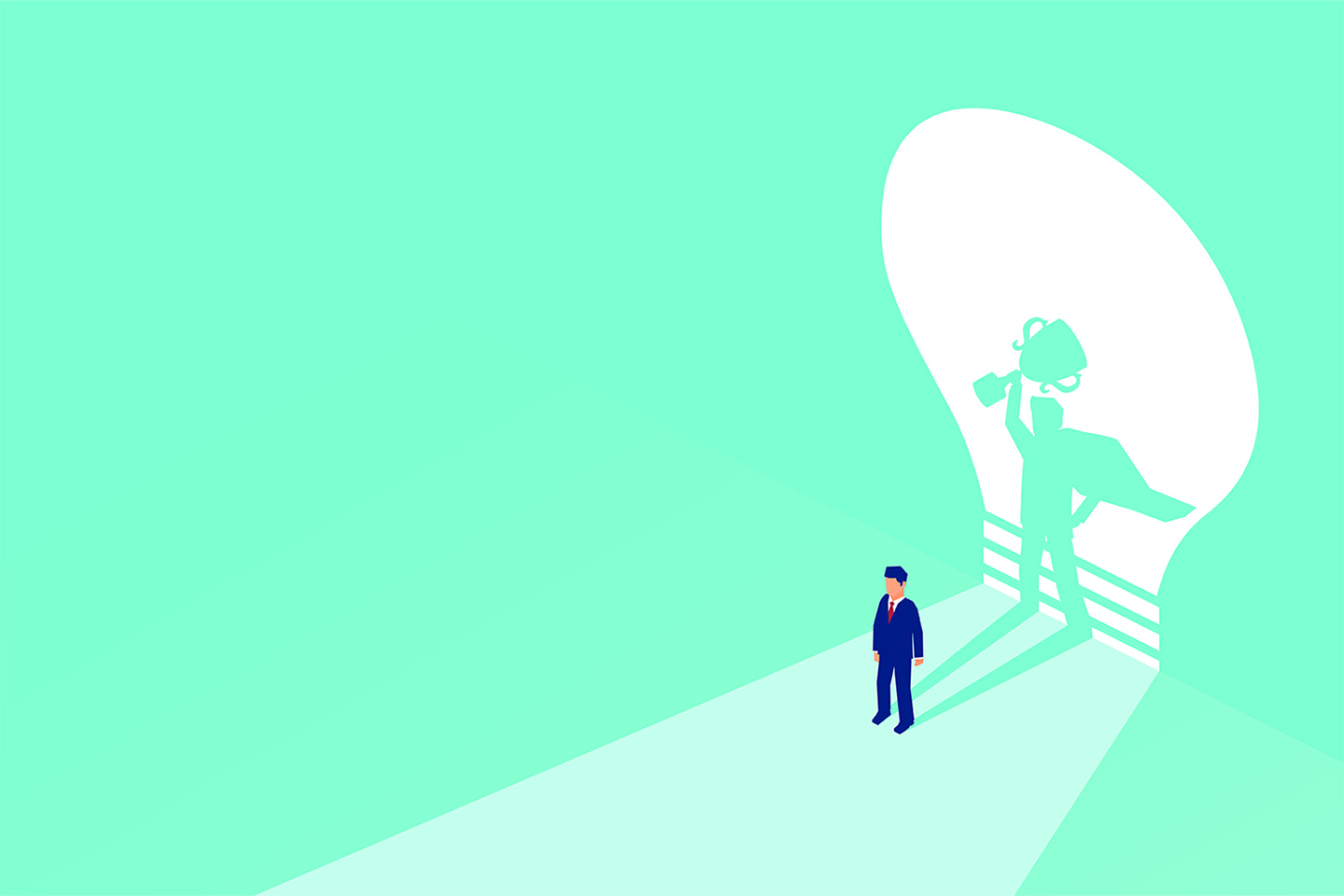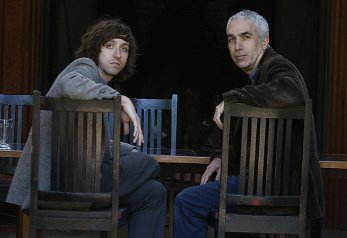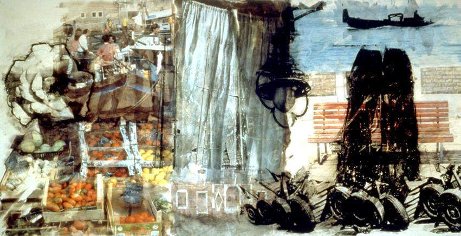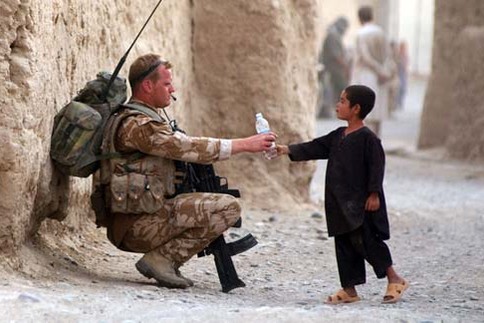
OLBIOS: Your work at the Thai Child Development Foundation (TCDF) has been making a difference in the lives of hundreds of children in need through education, access to medical care, while creating jobs for local people. Could you tell us about the methods and the strategy you are using and share your insights about best practices on the ground?
Rosalie Tieges: Our foundation, the Thai Child Development Foundation (TCDF) supports underserved youth through medical care and education. Our methods are always aimed towards sustainability.
Sustainability is a broad term. It includes allowing children to grow into their best selves in their own villages, supporting them without taking them out of their homes, but also ensuring that our foundation as an organisation and our local team live and work in a sustainable way.
Our foundations aim is to support the children in their development towards independence. This means that in the future challenged children are able to take care of themselves as well as possible and are not dependent on the support from others. At TCDF we are committed to securing TCDF’s support for children in need for as long as (but never longer than!) needed.
The foundation as an organization must give the right example for this important life lesson! Sustainability also means not being dependent on others, not having to beg, not being afraid whether this month we can get enough donations to continue the support to our children in need…. To be less affected by global influences and disasters including pandemics, war, politics, natural disasters and economic crisis, but to at least be able to cover our own basic needs.
We focus our energy in and invest our time in training and maintaining a strong local, long term team. And income-generating projects to support this, allowing us to be independent, strong and self-sufficient on a local level.
Sustainability in Food & Finance is particularly important. We see our foundation as a tree, we must nurture the soil so our roots grow strong and can weather storms during hard times. Our foundation will bear long-lasting fruit and continue to support and feed those in need for many seasons and generations to come.
We will secure the foundations’ future by aiming for self-sufficiency in both food & finance and solving the dangerous dependence on fundraising activities that TCDF, and most other foundations, still have. We believe this is the future for foundations and we are proud to be frontrunners and developers of the self-sufficiency method for foundations.
- We are improving and systemizing our programs to make sure programs work smoothly without constant monitoring and motivation by the founders
- Living in a sustainable way and decreasing our daily life expenses, allowing money to be spent where its most important
- increasing our farm’s self-sustainability so that we can take care of our daily life needs in times of financial struggle
- increasing our self-generating income with the Holiday for Charity concept.
- growing our network and expanding our impact with the share-a-skill and team-building programs at our forest school where everybody is welcome to learn!
O: Your foundation connects public educational & medical institutions to daily caretakers of underprivileged children in Thailand. It is hoped that this will allow each child to be independent within its particular circumstances. Can you tell us how you approach this, as well as the need of supporters and the importance of partnerships?
R. T. : Although Thailand is developing at a rapid pace and is a country where medical care and education are basically well organized, rural areas have little or no facilities for those in need of special care, education or socio-economic support. These children are helped by our foundation.
These are all kinds of different children. Children of all ages and children with different challenges from learning disabilities to Down syndrome to autism, to physical limitations, but also children growing up in extreme poverty or with social problems. Every child has his or her own challenges and every child is special and smart in his or her own way. At TCDF every child counts.
Children in need of care receive customized care at TCDF. As long as – but never longer than! – is necessary. The foundation currently supports about 120 boys and girls on a permanent basis. TCDF makes sure that customized medical care and education is also available to underprivileged children and children with disabilities or learning disorders who fall outside the locally available medical & educational systems.
These children are supported in the two project branches: Health Care & Education. TCDF combines local know-how with international knowledge of educational methods. We choose local sustainability and does not hire outside specialists to work directly with the children. Instead, they train a team of dedicated local women. For 15 years our steady local team has been providing customized care for each child in close cooperation with their parents or other daily life caregivers, the teachers and local healthcare providers. Our aim is to support the children in their own communities towards self-reliance and strength so they eventually don’t need our support anymore.
The care for the children in need has only been possible thanks to the support of our ever-growing network of individuals and companies with awareness from all over the world. Our CSR partners, joint venture partners, sister schools, ambassadors and friends who sponsor TCDF or share their skills.
We have been blessed by the support of many smaller sponsors who have helped us survive for more than a decade. Most of these sponsors were visitors, families on holiday who were looking to give more meaning to their visit to Thailand. They have been here and seen with their own eyes what a big difference a donation, even a small one can make to a small foundation.
So, over the years we were able to slowly gather all the materials we need to run efficiently and, most importantly, in a safe manner. We are blessed to have our own school bus with seat belts, physio material and occupational training work stations.
Beyond the set-up phase, it is in the continuity phase that we meet our toughest challenges. During the first few years it was not so difficult to get funds and we managed and grew and developed all these years. But now we seem to be too well organized and not “in need” enough for some sponsors. Jet is too small and invisible to apply towards big funds and companies. We seem to fall right in between the two types of sponsor options and are running out of new sponsors to apply.
Salaries are the hardest to get funds for because all sponsors want to donate something practical, visible, such as wheelchairs, physio material or milk and medicin. Salaries are a big expense, even though we work with local people and salaries are a few hundred dollars per month only. But without the teachers working with the kids all of this donated material cannot be put to use.
Being dependent on fundraising is dangerous and creates a full time -unpaid- job that we experience as very stressful and often even demeaning and demotivating. It’s hard to enjoy the beautiful and successful steps we achieve on a one on one basis with our children while we are uncertain how the next term will be at our school. Can we stay open or do we have to send all these kids home? Last school season we were in dire straits and if it wasn’t for a big emergency help donation from some of our steady sponsors, we would have actually had to close our doors for a term and maybe focus fully on fundraising for the next.
The oddest thing is that it was actually going better than ever at that point. The kids were really making progress in their development, children have learned how to walk after successful operations and extensive physiotherapy, they have learned to talk, or use sign language along with so many more amazing accomplishments by our kids over the last few years. Also, our team of local women whom we have trained step by step is dedicated, efficient and caring. We are getting more and more support on a local level, and are now even in the process of getting an amazing accreditation which means our students with disabilities will actually be able to graduate from primary school and high school at our foundation in the near future.
And for this very reason we must improve and make sure this never happens again. We are working hard to become self-reliant on a local level. We have developed a self-sustainability for foundations method with a focus on Food and Finance. We are the proud frontrunners in this method and believe it is the future for small foundations all over the world. However, at this point in time we are still dependent on sponsors for the school’s operational costs for the next few years. This phase is an overlap time towards local sustainability with the farm, restaurant and the resort. We expect that in the near future the support of the farm & restaurant (buy off all farm produce of the school and donate 100 % of the profits) are big enough to (together with the steady Friends of TCDF) cover all the monthly expenses and finally eliminate the need for fundraising completely.
O: You are also raising awareness on the environment at your circular economy forest academy and Ecologic resort, an impressive place surrounded by rivers, waterfalls, hot springs in the middle of the jungle. Can you tell us more about this initiative?
R.T. : Next to the foundation we have set up a social enterprise: Eco-Logic is a family-friendly nature & yoga retreat in Thailand that operates with a difference: all profits go towards the children of the Thai Child Development Foundation. By choosing Eco-Logic resort as a unique holiday get-a-way, visitors can donate to an honest, small scale charity that is visible to them by enjoying an off the beaten track holiday in the middle of nature. Families can combine the rich experience of volunteering with a family-friendly, safe but adventurous stay.
At Eco-Logic, resort for charity, we welcome all Thailand travelers with social & environmental awareness to this hidden jewel off the beaten tourist track. The 3 bungalows on the river were built to support the Foundation in a sustainable way. The ten-acre big property with forest school & permaculture farm is reachable by one-hour flight from Bangkok to Ranong plus fifteen minutes’ drive into the mountains. The project is located in a unique natural environment with waterfalls, jungles, mangrove forests, national marine parks and even hot springs just a day trip away! At “Eco-Logic Resort for Charity” travelers can discover the real Thailand beautifully from 1 place.
There are also special educational vacation programs (with invitation letters for schools and certificates) for families with children who travel for a long time and learn online.
All visits and booking create fair jobs for local people, for our students with disabilities and support scholarships and medical care for children in need. This is our Holiday for Charity concept. We are looking for partners in the travel industry to help fill up those three bungalows all year round after the pandemic that is.
O: Could you tell us about your story, what motivated you to leave the Netherlands in order to care for children in Thailand, the obstacles that you have met, and the rewards of this journey?
R.T. : My name is Rose Tieges, 43 years old. My life as a full-time philanthropist began in the Netherlands 20 years ago. After finishing my education in social development in the Netherlands, I started my volunteering work and gained international leadership skills working as a project leader for a foundation in the south of Thailand. Those first two years fresh out of university I organized educational workshops, teach the teacher trainings, leadership skills workshops in both Thailand and for volunteers in the European Union. Together with volunteers from Thailand and all over the world we set up Thailand’s first recycle banks, made paths in national parks, helped build organic farms and so on. An exciting two years in which I got to know Thailand, its culture, language and the people. But also the opportunity to travel for international volunteer alliance meetings from Brussels to Kiev to Vienna to Auckland New Zealand.
I learned a lot, worked a lot and built confidence in myself and was inspired by the many amazing people I met in the villages and programs who really want to make a difference. And what mattered most: I met so many children from underserved families who were so capable but just not given a fair chance. I found myself on a point knowing for sure: I can and will make a bigger difference and expand my impact. I can help to empower these children.
In the Thai countryside there are schools for all, there is a hospital or clinic in most villages even the smallest. The government system may not be perfect, but it is a lot better than in many other countries. But what about the children who fall outside this basic support system? Children with down syndrome who cannot keep up in school after first grade. Children in a wheelchair who just can’t reach the school? Children who fail all their tests and nobody knows they have autism? And children with severe medical conditions who the local doctor just can’t help and so end up on a mat in the hut after they survived their first years and got too heavy to carry into the fields on their mothers back every day?
I decided to start a foundation that helps the children that fall outside the existing medical and educational system. The Thai Child Development Foundation or TCDF. TCDF supports underprivileged children in their development by offering them the medical care and education they need. Without taking them out of their homes. On the contrary, we focus on involving the parents and other family members in helping their child to work towards independence and self-sufficiency.
I started TCDF 15 years ago with nothing. And Oh those older wise mostly grey men who looked at me from behind their desks in offices and embassies and said: “well, well little lady and how do you actually think you are going to do that, hmmmm?” But I was focused on the why and made sure I did get the how,who what where when and how many done. I did this by:
- planning and envisioning my goal,
- daring to adapt the course to changing circumstances but jet keep focused on the aim
- remaining completely honest and open on our spending up to the last 5 bht we used
- building a strong local team by selecting honest people eager to learn and determent to stay in their village and training them ourselves
- working small scale and efficient, always towards self-sustainable
- and last but not least, speaking about it to many people and welcoming all the help I could get
And this is what we have accomplished, starting with nothing whatsoever
- A school for students with disabilities
- Scholarship programs for the poorest
- Medical care for children in need
- An occupational training Centre for children with disabilities
- A big organic farm and forest school for people from all over the world to LEARN, EARN & RETURN
These 15 years I learned a lot, I worked a lot and I find myself on a point wondering: What if I cannot make the difference anymore? We live in times of war, of economic crisis, of natural disasters affecting millions, and of daily treats even in country’s we always considered safe. How can I ask my sponsors to keep sending money for our small group of children so they can learn an occupation, while there are thousands of children dying elsewhere? But jet, how can I explain to my students that they cannot come to school anymore and they must stay at home alone all day waiting for their parents to come home from work on the fields, because there are others in more dire need in a country he does even know exists?
I am very aware that the few children we help will not make a difference to the lives of the rest of the world in need. And we work at a very small scale indeed. But it does make the world of difference in the lives of the few children we can help.
And I am determined to secure this for the future. If you feel you can help in any way or you just want to brainstorm ideas to together expand our impact, please do reach out.
Rosalie Tieges is Founder & Director, Thai Child Development Foundation

